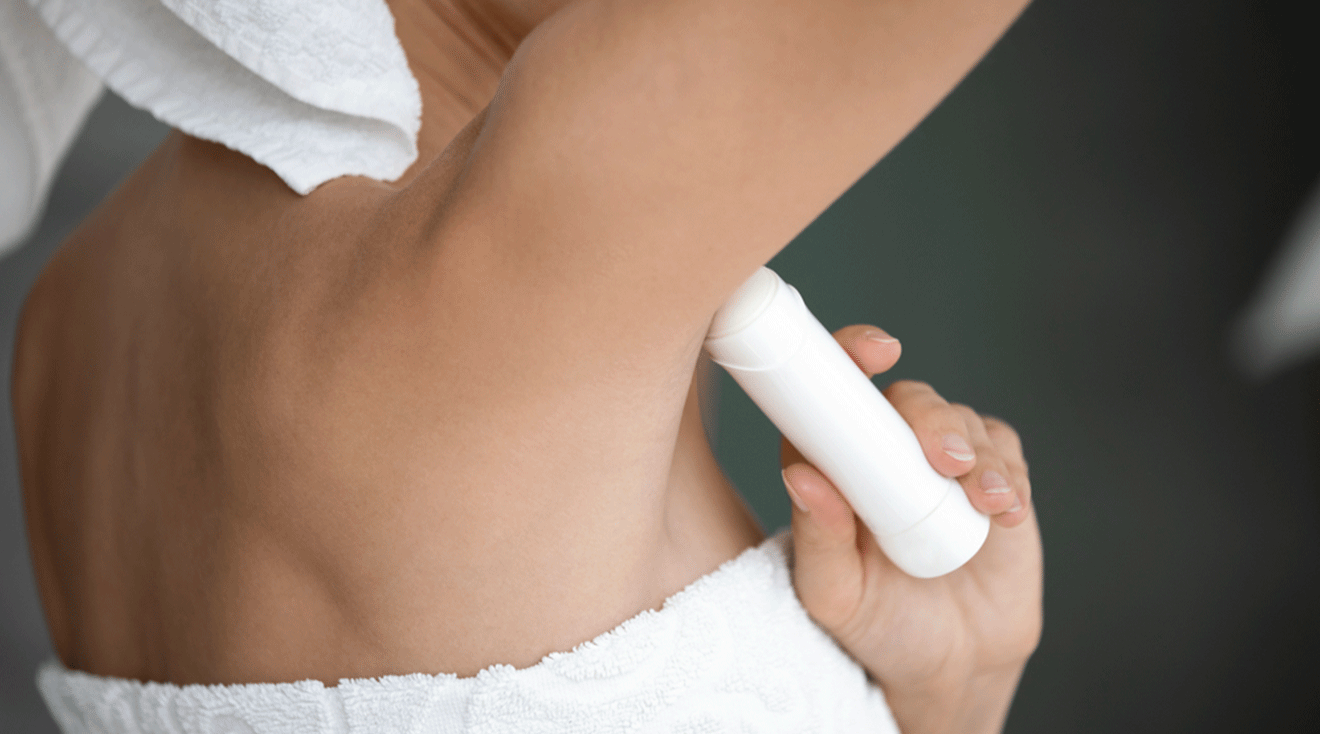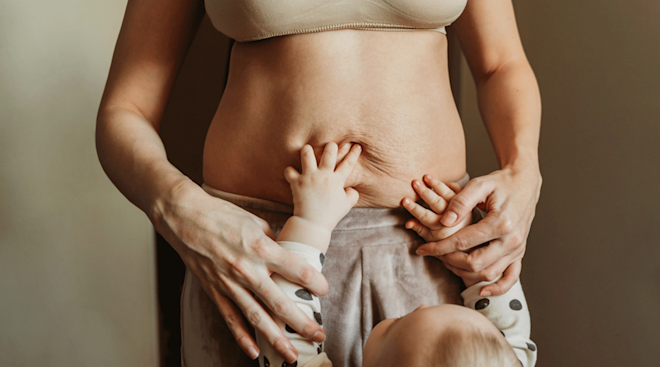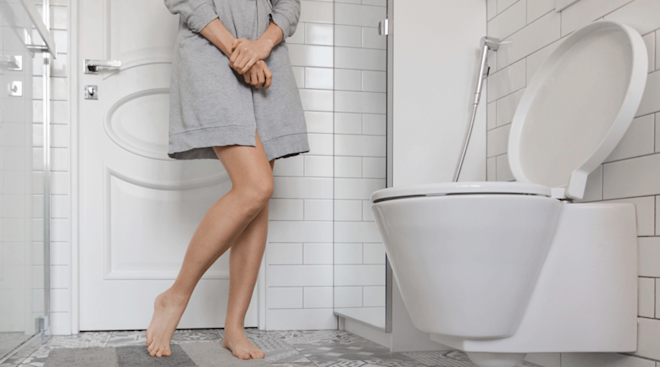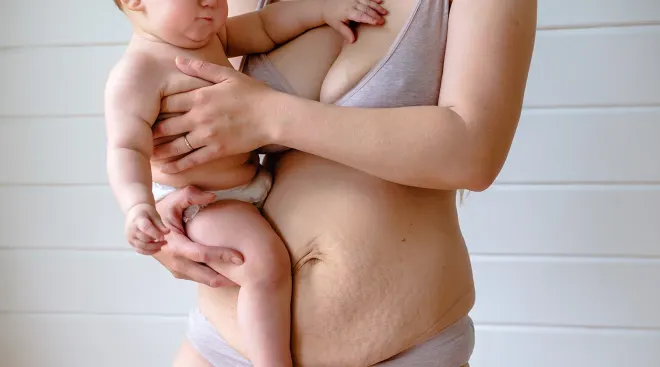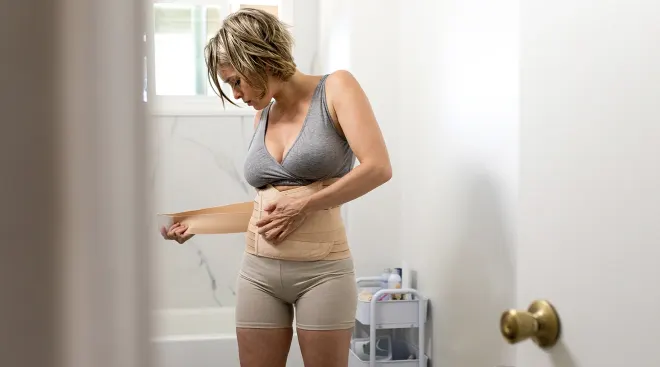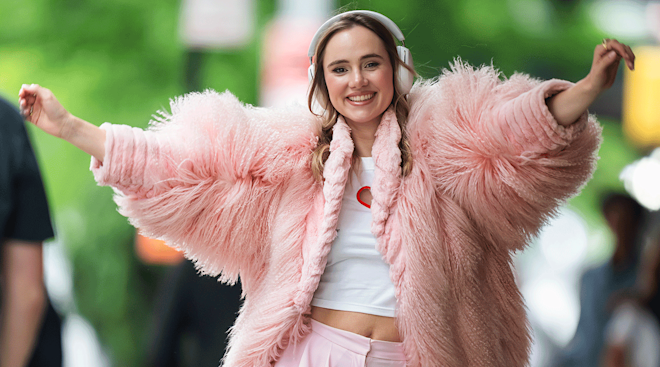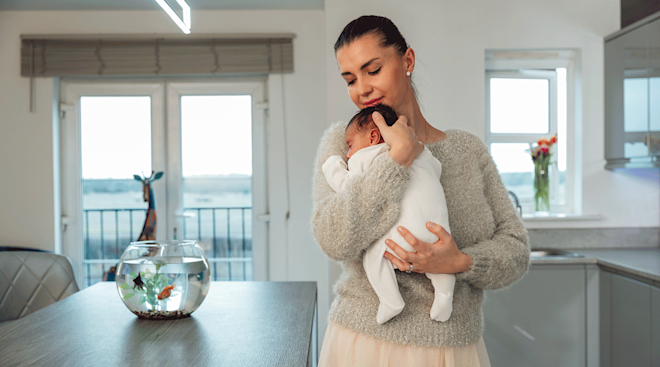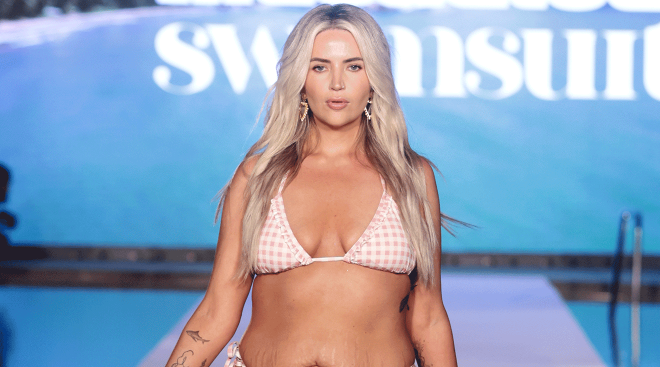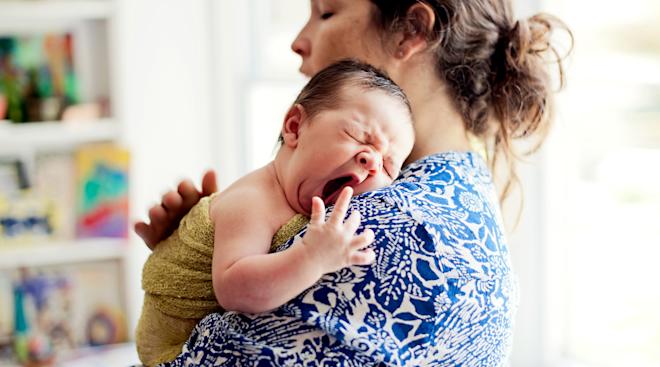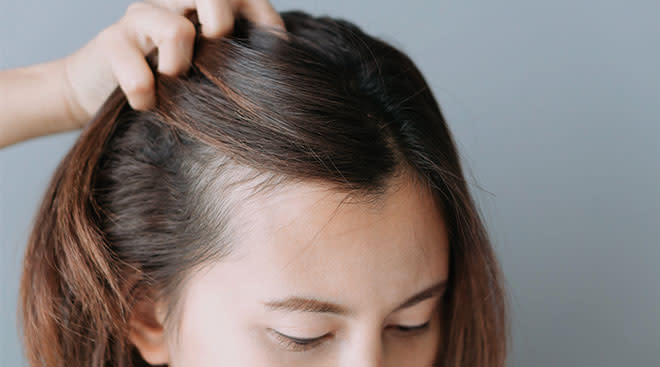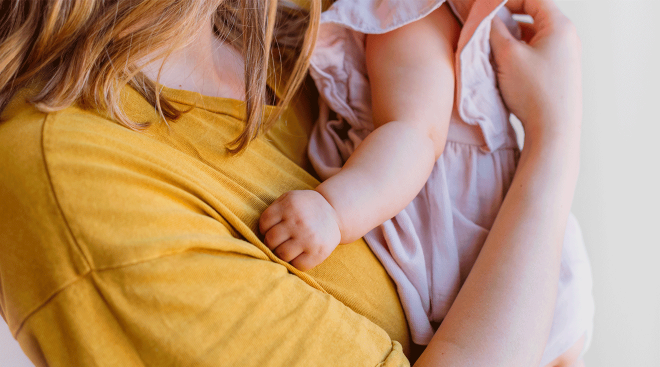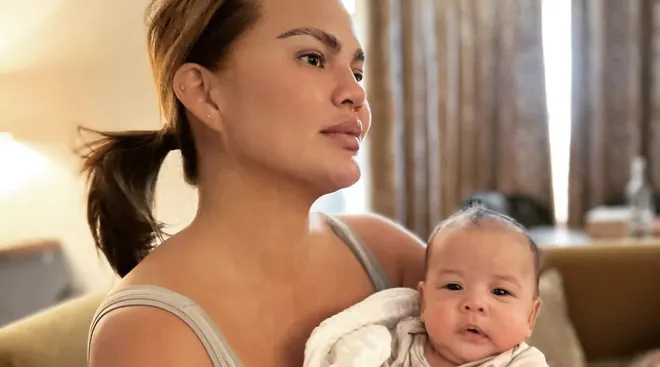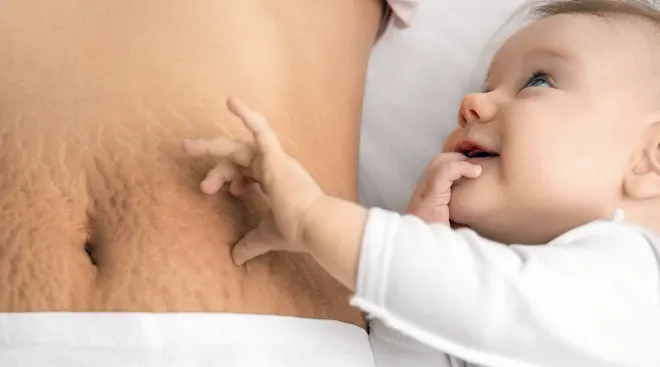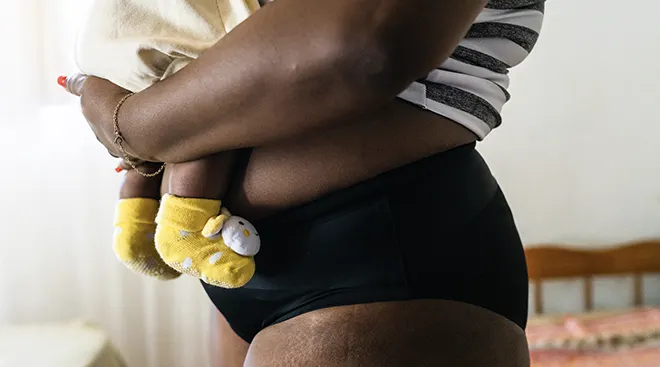Postpartum Body Odor Is Normal—But You Can Manage It
Everyone talks about how the postpartum period brings tons of physical, emotional and mental changes. But we’re guessing few people open up about a slightly more embarrassing affliction: postpartum body odor. The fact is, though, it’s entirely normal to, well, stink during this very hormonal stage of life. Below, experts break down what to know about body odor postpartum, how long it lasts and ways to manage it.
Your body goes through tons of hormonal transformations postpartum; there’s increased sweating and metabolic changes that happen too—and one consequence of all this internal turmoil is postpartum body odor, says Meleen Chuang, MD, chief of obstetrics and gynecology at NYU Langone Hospital in Brooklyn. Certain areas of your body—like your vagina—may also experience a shift in pH level, resulting in a change to its flora (i.e. good bacteria) and producing an odor. Finally, breast milk has its own smell that can become more prominent after let-down.
On top of all this, the way pregnant and postpartum women experience their own bodily scents may change. “Although many pregnant people say that they develop a more sensitive sense of smell, this cannot be verified by research. What has been found, though, is that pregnancy can increase sensations of disgust,” notes Felice Gersh, MD, a board certified ob-gyn and member of the plusOne Wellness Collective. “This means that normal body smells that used to be unremarkable may become [offensive].”
While troublesome, body odor postpartum is entirely normal and may even play an important role in baby’s early development. According to Gersh, several studies have shown that the smell of breast milk, breasts and other areas of the body serve as a strong signal for newborns and encourages them to nurse and make eye contact. All of this is crucial in strengthening the bond between Mom and baby. “Within just a few days, babies learn to recognize their mothers by scent alone, and they can even tell the difference between women who’ve recently given birth and those who haven’t,” she adds. This is largely because newborns rely on their sense of smell, which is stronger than their vision at this stage.
Like so many other aspects of the postpartum period, how long postpartum body odor lasts can vary and ranges anywhere from a few weeks to a few months. Per Chuang, it usually dissipates between weeks 12 and 16 postpartum, as lochia (i.e. postpartum bleeding) usually resolves during this time. However, it may even last beyond a year postpartum if you continue breastfeeding due to “ongoing hormonal shifts and increased sweating, particularly during feeding sessions or when your milk supply is adjusting,” adds Stephanie Hack, MD, ob-gyn and host of the Lady Parts Doctor podcast.
While the timing is variable, the experts all say postpartum body odor decreases once your hormones stabilize after childbirth.
Body odor after childbirth isn’t particularly pleasant, and it may be hard to get rid of entirely. “It’s important to remember that those odors are there for a purpose,” Gersh says. But rest assured there are ways to manage your—how do we put this?—fragrances. Below, the experts offer some tips on what to do about body odor postpartum:
- Shower daily: Showering every day is essential for staying clean and keeping postpartum body odor at bay, Chuang and Hack note, particularly if you’ve been sweating. “Between showers, you can take a ‘baby wipe bath’ by wiping down those body areas with the smelliest sweat,” Gersh adds, or by using baking powder on the areas of skin with the most body odor to help absorb sweat.
- Maintain good hygiene: Ensure you’re keeping your c-section incision clean, as well as following proper perineal care following vaginal delivery, Chuang adds. Plus, make sure you’re properly cleaning your nipples after breastfeeding and changing your bra and nursing pads when necessary. Lastly, Gersh recommends shaving your armpits to help keep those areas cooler and mitigate postpartum BO.
- Wear breathable clothing: If you’re struggling with increased sweating after baby, opt for breathable, loose and moisture-wicking fabrics, especially when shopping for a nursing bra.
- Stay hydrated: You know hydration is particularly important for breastfeeding moms, but it can also help with body odor after childbirth. “Drinking enough water helps flush out toxins and may reduce strong odors,” Hack explains.
- Pay attention to your diet: Certain foods, including garlic, onions and select spices, can increase your body odor, Hack explains. If you’re noticing stronger smells, consider adjusting or modifying your diet.
- Use unscented deodorant antiperspirant: “Deodorants mask odor, while antiperspirants can help reduce sweat,” Hack explains. It’s safe to use both postpartum, but you want to opt for ones that are unscented, especially if you’re breastfeeding. “Avoid heavy fragrances and chemicals, as newborn skin and lungs are delicate,” Chuang says. Plus, while there isn’t any scientific data proving these products are harmful to baby, you may want to opt for a natural deodorant, Hack suggests. These options typically include ingredients like baking soda and coconut oil, and avoid harsher ingredients like aluminum, parabens and synthetic fragrances. It’s always best to read over the ingredients to ensure there aren’t any you’re sensitive or allergic to. “Just be sure to avoid applying products directly to your breasts, as they’re not meant to be ingested and baby’s skin could be sensitive to them,” Hack adds.
- Stay active: Once you’re cleared for exercise by your provider, Hack says a regular and consistent routine can help “regulate your body’s sweat production over time.” It also helps keep stress levels in check, which can also “minimize hormone-related odor changes.”
Unfortunately, there aren’t any ways to completely prevent postpartum body odor, as it’s the result of the normal biological and hormonal changes that the body experiences after pregnancy and birth. However, you can manage the smell with the tips outlined above. “Regular hygiene, wearing loose, breathable clothing and maintaining a balanced diet can go a long way,” Hack says.
It’s annoying, but remember that postpartum body odor is natural and important for baby’s development. That said, if the odor is foul, severe and persistent, as well as accompanied by pain, reach out to your provider; it may signal an infection. “Sometimes surgical site infections and wound breakdown can be the cause of malodor that should be investigated and treated,” Chuang says.
As you navigate your postpartum body and its varied smells, give yourself some grace. “Postpartum body odor is a normal, temporary part of the postpartum experience for many women. Your body is going through significant changes, and this is just one way it adapts after childbirth,” Hack says. “As with all aspects of postpartum care, be kind to yourself—your body is recovering and adjusting in incredible ways!”
Please note: The Bump and the materials and information it contains are not intended to, and do not constitute, medical or other health advice or diagnosis and should not be used as such. You should always consult with a qualified physician or health professional about your specific circumstances.
Plus, more from The Bump:
Meleen Chuang, MD, is an ob-gyn and medical director of women’s health at the Family Health Centers at NYU Langone, as well as the chief of obstetrics and gynecology at NYU Langone Hospital in Brooklyn, NY. She earned her medical degree from SUNY Stony Brook.
Felice Gersh, MD, is a board certified ob-gyn and member of the plusOne Wellness Collective. She earned her medical degree from the USC School of Medicine and completed her residency at the Kaiser Hospital in Los Angeles.
Stephanie Hack, MD, MPH, is board certified ob-gyn and host of the Lady Parts Doctor podcast. She obtained her medical degree from Lewis Katz School of Medicine at Temple University, as well as a masters degree in public health. She completed her residency at Georgetown University Hospital and Washington Hospital Center.
International Journal of Molecular Sciences, Association between Disgust Sensitivity during Pregnancy and Endogenous Steroids: A Longitudinal Study, July 2024
Brain Sciences, Body Odours Sampled at Different Body Sites in Infants and Mothers—A Comparison of Olfactory Perception, June 2021
Learn how we ensure the accuracy of our content through our editorial and medical review process.
Navigate forward to interact with the calendar and select a date. Press the question mark key to get the keyboard shortcuts for changing dates.

































